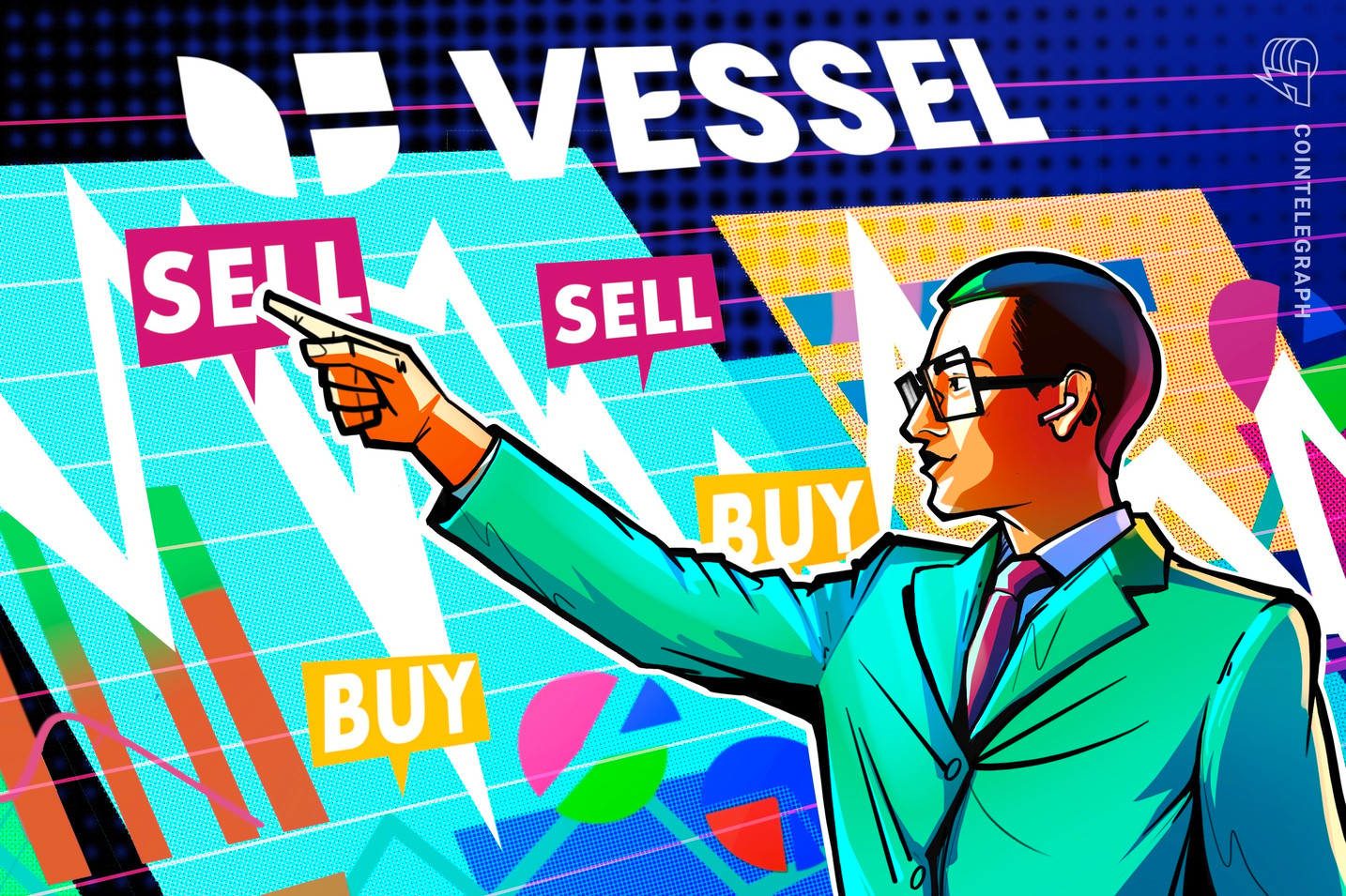ZK-powered DEX raises $10M from Web3 heavyweights, launches mainnet

With a $10 million seed funding round, Vessel aims to develop a comprehensive DeFi layer 3 to explore ZK solutions and applications and address DeFi challenges like liquidity fragmentation and cross-chain compatibility.
One of the primary challenges in the crypto trading industry is striking the right balance between efficiency and transparency. Centralized exchanges (CEXs) offer fast transactions but often lack transparency, leading to concerns about security and trust.
On the other hand, decentralized exchanges (DEXs) provide users with greater visibility into system operations but typically involve lengthy processes, conflicting with the rapid pace of the crypto market.
This is where zero-knowledge (ZK) proof technology comes into play. ZK-proof is used to pack a large amount of off-chain computation into SNARK proofs and then submit them on-chain. This process verifies the validity and authenticity of user actions. Users enjoy both transparency and efficiency. This pushes the crypto space forward by removing the traditional trade-offs between speed and security.
Taking the best aspects of CEX and DEX
Vessel Finance, a ZK-powered order book exchange, aims to merge the reliability of DEXs with the speed of CEXs. By utilizing ZK technology, the platform ensures verifiable and transparent processes without revealing underlying information, allowing users to maintain self-custody of their assets. The DEX now offers services in direct asset trading (spot) and will be building long-term trading contracts (perpetual) and other advanced financial products like derivatives in the future.

Vessel aims to combine the best features of both CEXs and DEXs into a familiar interface. Source: Vessel Finance
Vessel recently closed a $10 million seed funding round, attracting prominent investors such as Sequoia, Scroll co-founders Sandy Peng and Ye Zhang, Avalanche Foundation, Algorand Foundation, IMO Ventures, Folius Ventures and Incuba Alpha.
Vessel intends to use the investment to develop a comprehensive layer-3 (L3) network for the decentralized finance (DeFi) space. Layer-1 represents the core blockchain architecture, layer-2 focuses on scalability and speed, and L3 provides proprietary protocols that enhance user experience, interoperability and functionality.
Vessel’s L3 network will incorporate ZK-proofs to secure user assets and prevent malicious acts.
Additionally, Vessel plans to expand collaborations with key industry partners, driving innovation and growth within its ecosystem. To reward early supporters and loyal users, Vessel is opening up its first mainnet incentive program, Vessel Voyage, which strengthens community engagement.
Liquidity pools meet order book mechanics
A prominent feature of Vessel is its hybrid model, VAELOB — the verifiable automated market maker (AMM)-embedded limit order book, which turbocharges traditional order books with its smart liquidity from AMM pools.
Not only do AMM pools help process order books, but they also work as programmatic market makers within the order books to earn extra fees. This Vessel’s hybrid approach enhances liquidity for traders and increases fee potential for liquidity providers.
Vessel’s hybrid approach enhances liquidity for traders and increases fee potential for liquidity providers.

VAELOB - the verifiable AMM-embedded limit order book. Source: Vessel Finance
The integration of CEX and DEX features within Vessel’s platform marks a transformation in the financial world, enabling fast transactions without sacrificing security or trust. This evolution opens new avenues for building trust and making finance more accessible, marking the beginning of a new era in DeFi.
Disclaimer. Cointelegraph does not endorse any content or product on this page. While we aim at providing you with all important information that we could obtain in this sponsored article, readers should do their own research before taking any actions related to the company and carry full responsibility for their decisions, nor can this article be considered as investment advice.
Related News
- Bitcoin miners record lowest daily revenue of 2024
- More 'extreme fear' than FTX crash — 5 things to know in Bitcoin this week
- Bitcoin price drops below $59K as institutions stop buying stablecoins
- Why Web3 gaming needs a Steam-like platform for growth
- Ether ETF weekly flow hits positive for the first time since launch
- Crypto startup funding grows to $2.7B in Q2 despite fall in total deals
- Canto chain targets fix amid 33-hour outage caused by consensus issue
- Ethereum median gas price hits 5-year low
- Zcash founder joins Shielded Labs, pushes for hybrid PoS upgrade
- Crypto user fat fingers $90K fee for a $2K ETH transfer
© 2025 DeFi.io